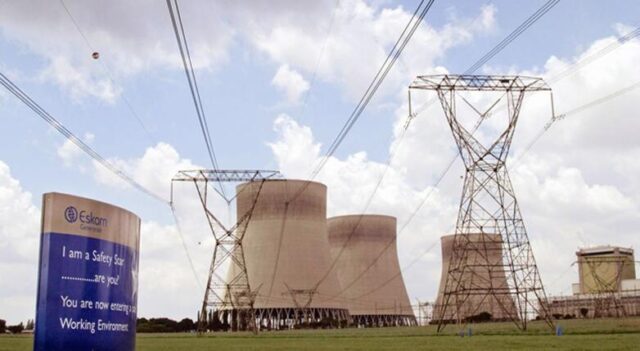The power utility said there had been several enquiries about what happens if the country gets to stage 8 load shedding, so they made a request to expand the document to more stages, “to provide certainty that stage 8 is not the last level before a network collapse”
AS ESKOM announced that load shedding would be between stages 5 and 4 today, it also confirmed it had requested an update to a document on the power-cut stages to allow for higher ones.
The NRS 048-9 code of practice document currently describes load-shedding stages 1 to 8.
When asked about the document on Thursday, Eskom said: “The Eskom system operator requested the Nersa (National Energy Regulator of SA) document known as the NRS 048-9 to be updated to higher stages purely because at the time of development of the previous version, stage 8 was used, as we did not foresee getting there at the time.
“Lately there have been a lot of enquiries around what happens if we get to stage 8, and hence we opted to expand the document to more stages, to provide certainty that stage 8 is not the last level before a network collapse.”
Eskom added that only Nersa could adapt the document to provide for higher stages of load shedding.
“It is important to note that the current document stays as the official document until (it is) replaced by Nersa. We therefore cannot comment on the process that Nersa would follow to adapt the document. Eskom will only know what the final document entails once it has been adapted by Nersa.”
Nersa spokesperson Charles Hlebela said the NRS Association of SA – which includes Nersa, Eskom, metropolitan municipalities, the Association of Municipal Electricity Utilities of Southern Africa, and the SA Bureau of Standards – was revising the NRS 048-9 code of practice document.
“However, Nersa will also take the document through its public consultation processes before approval. Nersa has not yet received the revised document.”
Lungile Mashele, an energy economist, said the updated NRS 048-9 document would provide for higher stages of load shedding.
“The NRS 048-9 document is going through its third iteration. The third iteration will provide for higher stages of load shedding above the current stage 8 we have – possibly stages 1 to 16.”
Mashele added that the energy availability factor and unplanned capability loss factor for Eskom’s plants were the reasons for the state power utility requesting that the document be updated.
“Eskom’s fleet performance has deteriorated exponentially since 2019, with a current EAF of 53%. UCLF sits at 34%. This is the worst fleet performance in Eskom’s 100-year history. What is troubling is that Eskom does not seem to have a handle on UCLF and how to prevent it from worsening.”
Mashele said members of the public should not panic at this stage about the updating of the document.
“The updating of the NRS 048-9 (document) should not concern people immediately. However, it speaks to possibilities and being prepared. When the second iteration was made, no one thought we would get to stage 8, but Eskom achieved that last week.”
David Lipschitz, an energy resilience expert and the author of the book The Last Blackout, said it was being suggested that the load-shedding stages could go up to 16.
He said that, as it stood, stage 8 was 4.5-hour periods of load shedding three times a day, which amounts to 13.5 hours a day.
“My understanding is that they are going to stage 10, but some people have said stage 16.”
Lipschitz added that the public should be very concerned.
“We should be demanding access and level playing fields. This business of government supporting business before the rest of us must stop. We should all have the same rights.”







